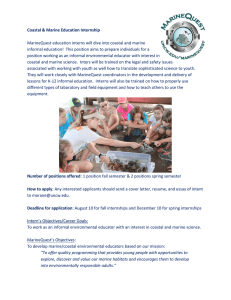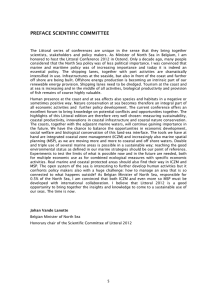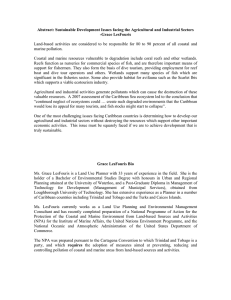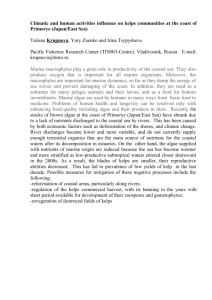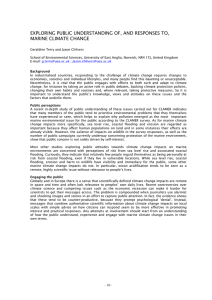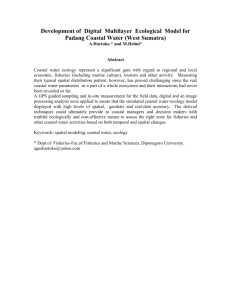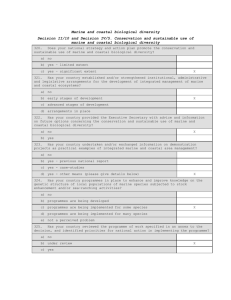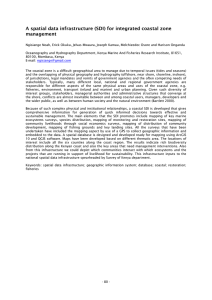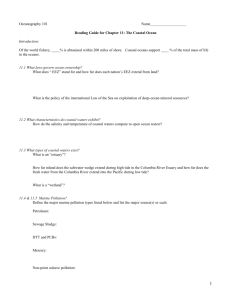DEVELOPING FUTURE COAST NETWORKS BREAKOUT GROUP
advertisement
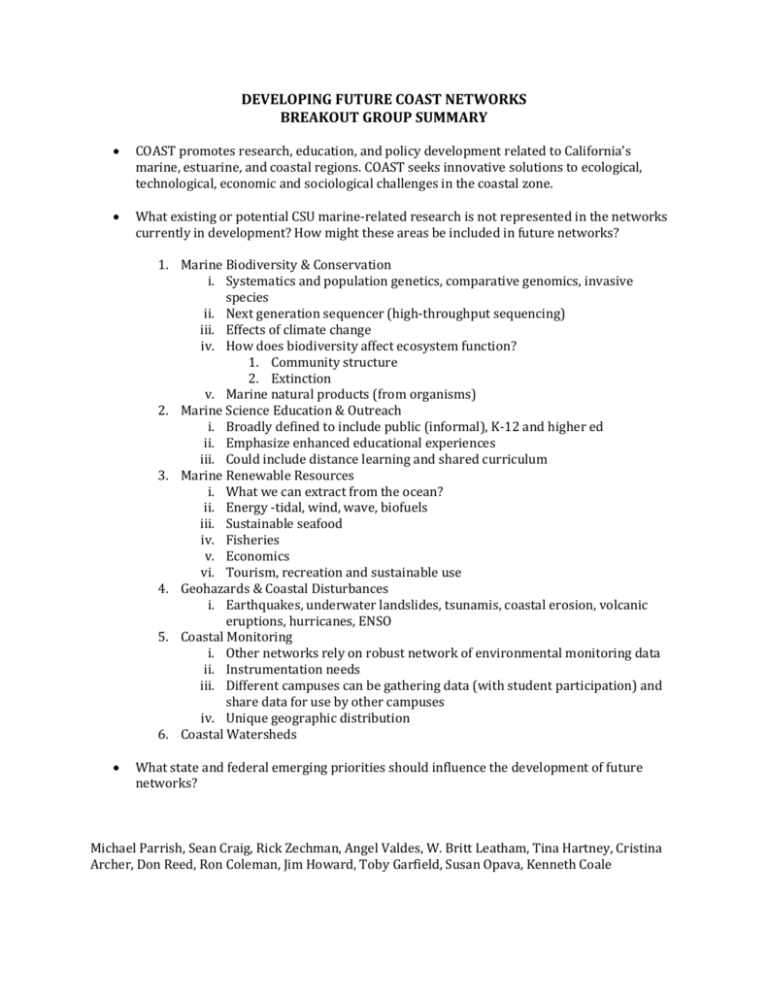
DEVELOPING FUTURE COAST NETWORKS BREAKOUT GROUP SUMMARY COAST promotes research, education, and policy development related to California’s marine, estuarine, and coastal regions. COAST seeks innovative solutions to ecological, technological, economic and sociological challenges in the coastal zone. What existing or potential CSU marine-related research is not represented in the networks currently in development? How might these areas be included in future networks? 1. Marine Biodiversity & Conservation i. Systematics and population genetics, comparative genomics, invasive species ii. Next generation sequencer (high-throughput sequencing) iii. Effects of climate change iv. How does biodiversity affect ecosystem function? 1. Community structure 2. Extinction v. Marine natural products (from organisms) 2. Marine Science Education & Outreach i. Broadly defined to include public (informal), K-12 and higher ed ii. Emphasize enhanced educational experiences iii. Could include distance learning and shared curriculum 3. Marine Renewable Resources i. What we can extract from the ocean? ii. Energy -tidal, wind, wave, biofuels iii. Sustainable seafood iv. Fisheries v. Economics vi. Tourism, recreation and sustainable use 4. Geohazards & Coastal Disturbances i. Earthquakes, underwater landslides, tsunamis, coastal erosion, volcanic eruptions, hurricanes, ENSO 5. Coastal Monitoring i. Other networks rely on robust network of environmental monitoring data ii. Instrumentation needs iii. Different campuses can be gathering data (with student participation) and share data for use by other campuses iv. Unique geographic distribution 6. Coastal Watersheds What state and federal emerging priorities should influence the development of future networks? Michael Parrish, Sean Craig, Rick Zechman, Angel Valdes, W. Britt Leatham, Tina Hartney, Cristina Archer, Don Reed, Ron Coleman, Jim Howard, Toby Garfield, Susan Opava, Kenneth Coale


